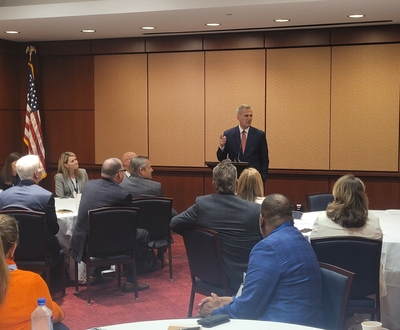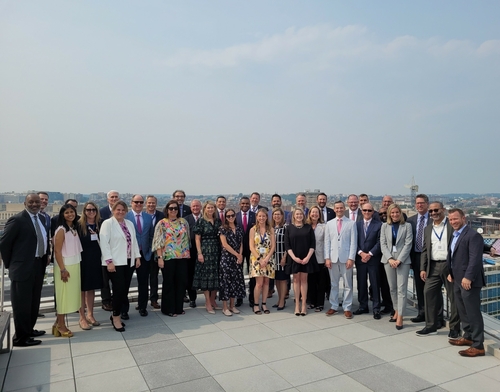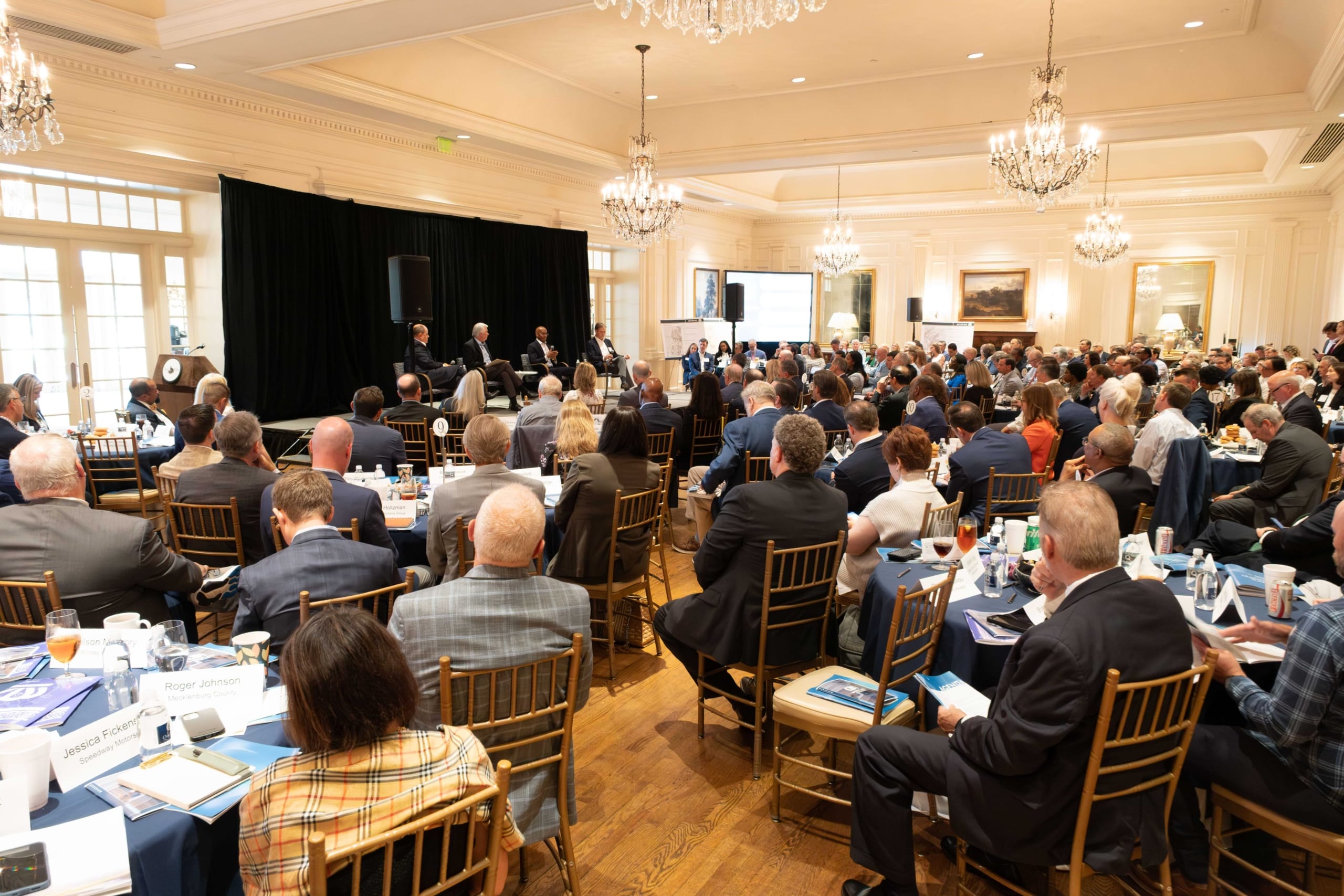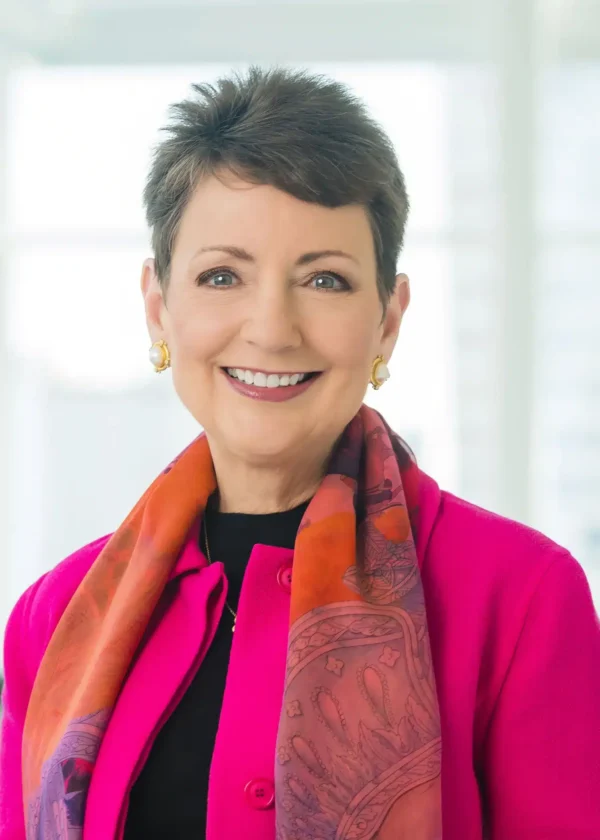For the second year in a row, the Charlotte Regional Business Alliance® led a delegation of business and community leaders on a Washington, DC Fly-In.
Speaker of the House Kevin McCarthy headlined the program this year. McCarthy offered the CLT Alliance delegation the unique opportunity to hear from one of the most important policymakers in Washington.
McCarthy discussed how he strives to work with his Democratic counterpart, House Minority Leader Hakeem Jeffries, to come to agreement on important issues in the House. In addition, McCarthy said he tries to foster a good working relationship with all members of Congress so that the body can pass good policy.
McCarthy also shared how he is trying to give his members all the tools they need to pass good policy. He has worked with 10 of his House members to enlist the help of MIT professors to develop a course on artificial intelligence (AI). The course will be made available to House members so they can have more background and knowledge available on AI when debating the topic and making policy.
At the end of his remarks, McCarthy shared that he “believes in the exceptionalism of America.” The CLT Alliance looks forward to the work of the speaker and his colleagues during the rest of this Congress.

In addition to the speaker, the CLT Alliance also heard from members of our local delegation.
Sen. Ted Budd focused on his committee work, particularly on the Commerce, Science, and Transportation Committee. On that committee, Budd is working on FAA reauthorization and championed a request for $450 million for an additional runway at Charlotte Douglas International Airport.
Budd also serves on the Health, Education, Labor, and Pensions (HELP) Committee. There, he is focused on a number of issues, including worker shortages in the health care field. He is grateful for programs supported by CLT Alliance investors that help connect students to particular fields of interest and will continue to support innovative workforce solutions.
Sen. Thom Tillis spoke about having a great delegation to work with from North Carolina, including Budd, his new colleague in the Senate. Tillis also noted his support for funding the additional runway at Charlotte Douglas and his support for the bipartisan infrastructure bill. He noted that he will continue to work to ensure infrastructure projects are awarded to North Carolina.
Tillis also talked about the CHIPS bill and his support for projects coming to North Carolina. When talking about economic development opportunities related to the bill, he said, “with strategic pursuits, get me involved early.”
Rep. Alma Adams discussed her top priorities for the Charlotte Region. For her, education is a top priority. As founder of the Congressional Bipartisan Historically Black Colleges and Universities (HBCU) Caucus, she is committed to championing the country’s HBCUs, including Charlotte’s Johnson C. Smith University.
Adams is also focused on eliminating hunger in her district. She has led the Adams Hunger Initiative for several years, aiming to end hunger for the 165,000 individuals who are food insecure in her district.
The CLT Alliance also heard from Reps. Richard Hudson, Jeff Jackson, Dan Bishop, and Ralph Norman.
In addition to hearing from elected leaders from across the Charlotte Region, the CLT Alliance also heard from policy experts from the media, the U.S. Chamber, and the Biden Administration.
Jonathan Martin, politics bureau chief and senior political columnist at POLITICO, keynoted the first day of programming. Martin discussed the debt limit vote and how all parties worked toward a consensus. He noted the important role of Rep. Patrick McHenry, who represents part of the Charlotte Region.
While critical to the national and global economies, Martin noted that presidential candidates are not talking about the debt limit on the campaign trail.
Martin said that a lot of political jockeying will happen in the presidential race over the next several months. Both parties will need to determine if they will support President Joe Biden and former President Donald Trump at the top of their tickets for 2024. The election next year could be a turning point for both parties, which need to decide their leaders for the next few years.
In particular, Martin noted that potential debates could be telling. Would Biden and Trump participate in primary debates or decline because they view themselves as the default leaders of their parties?
Martin will continue to spend time in the early primary states – Iowa, New Hampshire, and South Carolina. His work at POLITICO can be found here.
Following Martin was Ron Eidshaug, vice president and chief of staff for government affairs at the U.S. Chamber of Commerce. He provided a state of play update on Washington.
Eidshaug said there was a sigh of relief from the business community when the debt ceiling issue was finished. He also said the business community helped Congress take the issue seriously and understand the need to get to a deal before a default, sharing the grave economic consequences of not doing so.
Eidshaug said the U.S. Chamber will continue to be focused on solutions for important issues facing the business community. This includes immigration reform/border security, child care, entitlement reform, research and development incentives, and AI policy. The chamber will continue to work with any willing policymakers to move policy forward for the business community.
When forecasting the rest of the year, Eidshaug said to follow the budget, Farm Bill, FAA reauthorization, and the Defense Authorization Bill as a few key items likely to be addressed by Congress.
The CLT Alliance also heard from Ronnie Chatterji, White House Coordinator for CHIPS implementation. Chatterji, a North Carolina native, talked about the great opportunities for semiconductor and related investments in the Carolinas stemming from the CHIPS bill. With Wolfspeed, Toyota, and other electric vehicle-related investments being made in North Carolina, the Charlotte Region is well-positioned to be a leader in this space.
Chatterji said that future investment from the CHIPS Act will follow private sector investment. The CLT Alliance looks forward to continuing to work with Chatterji to enhance the profile of the Charlotte Region in attracting these important investments.



